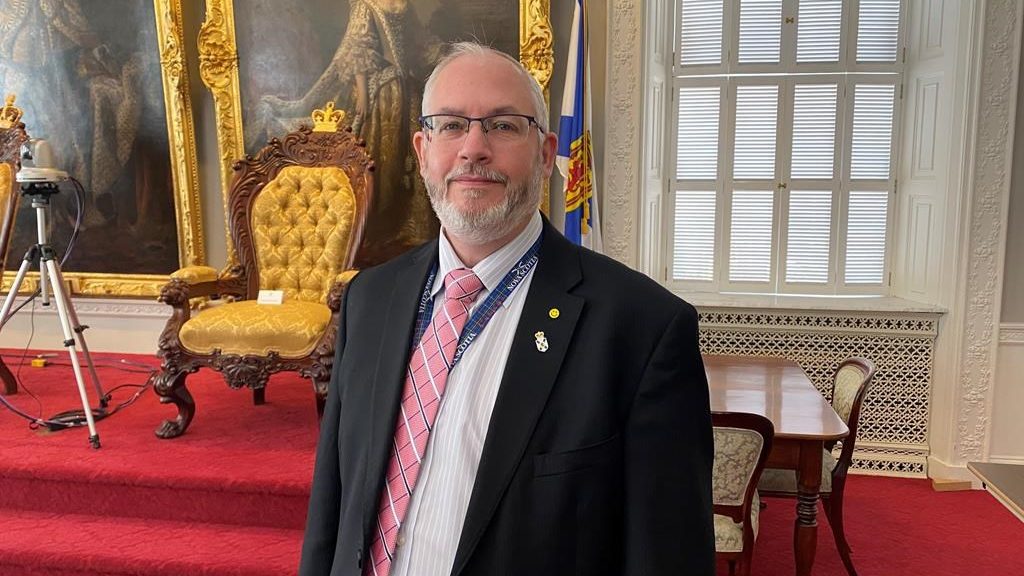Hours after release in Florida, Conrad Black welcomed home by Barbara Amiel
Posted May 4, 2012 06:33:21 PM.
This article is more than 5 years old.
A warm homecoming kiss from wife Barbara Amiel greeted Conrad Black at his Toronto home Friday, just hours after the disgraced media baron — jailed for years on fraud and obstruction of justice charges — was released from a prison in Florida.
Journalists peering through the wrought-iron fence spotted the couple roaming the grounds of Black’s sprawling Bridle Path estate — a tranquil neighbourhood of mansions known by some as Millionaire’s Row — as two rambunctious white dogs played at their feet.
Black and Amiel paused briefly for a kiss amid the flowering trees on the property before retreating back inside the house.
Later Amiel came out to the front gate but had little to say to reporters about how her husband was feeling.
“It’s not been easy, but he’ll be fine, thank you very much and be nice to my dogs,†she said.
The sighting came just hours after a three-vehicle caravan that was believed to be carrying Black roared through the front gate of the Federal Correctional Institute in Miami.
The 8:15 a.m. motorcade looked more like it should have been reserved for a visiting diplomat than a convicted criminal.
A prison guard’s pickup truck, with flashing lights and a blasting siren, blocked rush-hour traffic on the busy boulevard that runs by the facility’s front gate.
The move allowed two SUVs and a green van with tinted windows to make a quick exit from the suburban complex, giving a dozen journalists assembled nearby little time to focus their cameras on the vehicles.
Canadian and American journalists, at least one of whom had spent the night staking out the prison’s front gate, watched the scene while standing on a median that divides the bustling street.
“Earlier today, U.S. Immigration and Customs Enforcement (ICE) Enforcement and Removal Operations effected the return of Mr. Conrad Black to Canada in accordance with the final order of removal,” officials said in a statement.
Despite the fact Black renounced his Canadian citizenship in 2001 to accept a British peerage, Ottawa granted his application for a one-year temporary resident permit.
Black was sent to jail in 2007 for convictions related to his business dealings at the helm of newspaper giant Hollinger Inc.
He was originally sentenced to serve 78 months in jail after he was convicted of three counts of fraud and one count of obstruction of justice by a Chicago jury.
The four-month trial focused on the complaints of shareholders, who said they had been swindled out of $6.1 million.
He served his first prison stint — about 2 1/2 years — in Florida’s Coleman Federal Correctional Complex. He was released on bail in 2010 after an appeal court reversed two of his three fraud convictions.
Black was ordered back to prison last September to finish his reduced sentence of 42 months in Miami. With 29 months already served, and additional credit for good behaviour, he remained behind bars for just eight months.
His Miami home since September had been a nondescript complex of low-lying, concrete buildings about a half-hour drive from downtown. The grounds feature outdoor amenities like basketball courts and a baseball diamond.
From the road, the low-security institution is unassuming.
The front gate sat wide open over the last couple of days, with only a fence topped with barbed wire and a few Department of Justice signs offering any indication that a prison lies deeper on the grounds.
The red-roofed buildings, which once housed former Panamanian dictator Manuel Noriega, sit behind an imposing fence wrapped with large swirls of razor wire.
The fact that Canada’s most-famous media magnate was being released hardly seemed to register in the Florida city. The Miami Herald ran a brief news item in its pages Thursday, but didn’t print anything about Black the following day.
Many locals, when asked about Black, said they had never even heard of him — a far cry from the towering headlines that appeared in Canada at the news of his pending release.
Earl Cherniak, Black’s Toronto-based lawyer, said his client just wants to rest.
“The man’s been in prison for I don’t know how long. He wants to decompress,” Cherniak said. “I mean, he’s been in a cell with two other people and one toilet. Would you want to be out partying tonight? I don’t think so.”
Soon, however, Black could be back in the public eye. His memoir, “A Matter of Principle,” is a finalist for Canada’s National Business Book Award, to be presented at the Ritz Carlton Toronto hotel later this month.
Black is also expected to maintain his gig as a columnist for Postmedia’s Toronto-based National Post, the publication he founded in 1998, said chief executive Paul Godfrey.
“He’s a very well-read columnist,” Godfrey said. “People who like (him), or don’t like him, read him.”
In the days before he was freed, the historically polarizing Black was already stirring controversy north of the border.
Two days of fierce debate erupted on the floor of the House of Commons when news emerged that Black had been granted a temporary reprieve from the strict conditions that typically keep the majority of convicted felons off Canadian soil.
The NDP accused the governing Conservatives of having a double standard, but Citizenship and Immigration Minister Jason Kenney insisted the decision to approve Black’s application for a temporary permit involved no political interference.
The Montreal-born Black, whose empire was once worth hundreds of millions of dollars and included newspapers in Canada, the U.S. and Europe, told an interviewer last year that his first jail term — during which he cleaned latrines and tutored fellow inmates — had made him “humbler.”
A former head of Hollinger, Black controlled a media empire that included The Daily Telegraph of London, the Chicago Sun-Times and newspapers across Canada and the U.S.
— With files from the Associated Press










